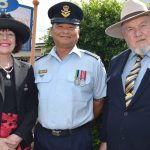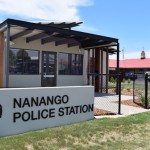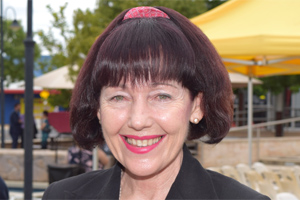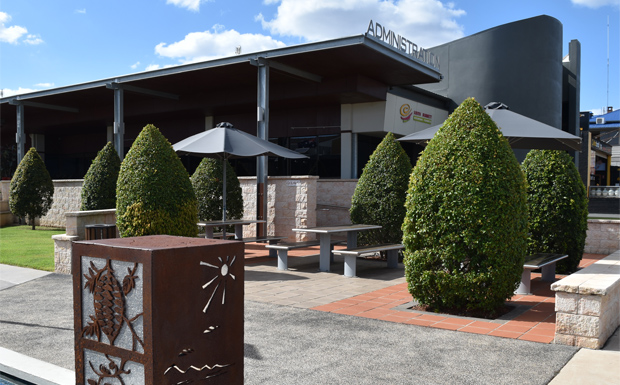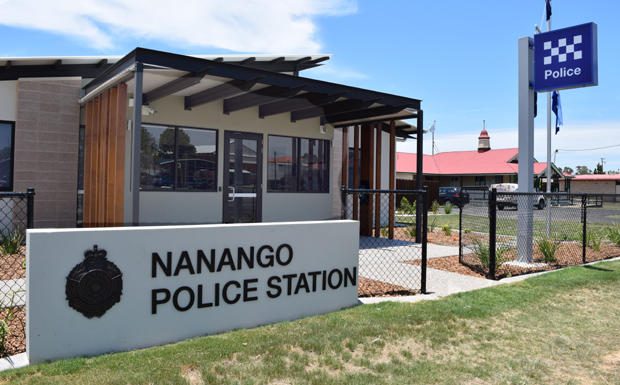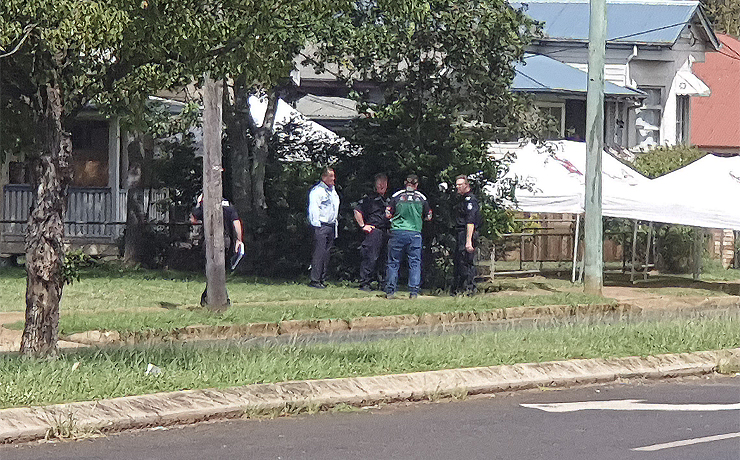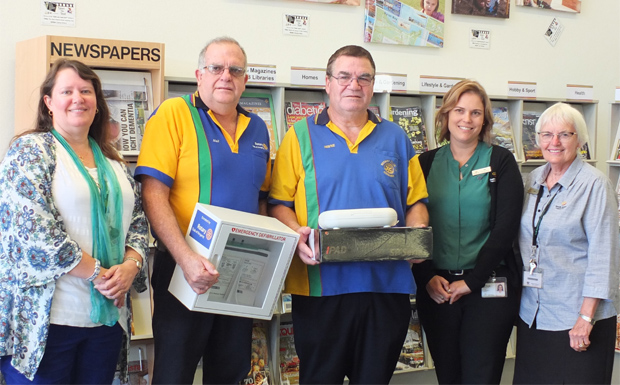
May 23, 2017
The Kingaroy Library will become a safer place to visit from Tuesday onwards, thanks to the Kingaroy Rotary Club.
The library is now home to an Automated External Defibrillator (AED).
Members of the Kingaroy Rotary Club met up with Cr Danita Potter and library staff on Tuesday for the official handover of the device.
“This project will have a positive impact on our community, and I would like to express our appreciation to Kingaroy Rotary Club for donating this AED to the library,” Cr Danita Potter said.
“I hope the need for it will never be realised.
“But if someone has a cardiac emergency here or nearby, it could help prevent a tragedy that otherwise may not have been averted.”
Kingaroy Rotary Club president Wayne Bushell said the group first realised the need for AEDs in 2014.
“We found that while many South Burnett organisations and businesses trained their staff in first aid – and part of that training involved the use of an AED – no-one at that time owned one,” Wayne said.
“We recently identified the Kingaroy Library as a possible candidate for a defibrillator location, given the age of some of its members and its central location.”
All library staff will be trained to use the AED and the South Burnett Regional Council will be responsible for its maintenance and upkeep.
However, the cost will be minimal compared to the peace of mind the AED will bring.
“Statistics show that early intervention in cases of cardiac arrest (within the first 5 minutes) can dramatically improve outcomes for victims if an AED is available,” Wayne said.
“For every minute a person in cardiac arrest goes without being successfully treated by defibrillation, the chance of survival decreases by 7 per cent per minute for the first 3 minutes, and decreases by 10 per cent per minute beyond that.
“Given there are many sports and community groups located in areas where immediate medical assistance is not available, the response time is usually greater than 5 minutes and their members are exposed to higher risk of fatality in a cardiac arrest,” Wayne said.
“That’s why the Rotary Club initiated this project, and to date we have purchased and supplied eleven units throughout the Kingaroy community.”
Related articles:







